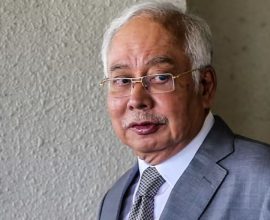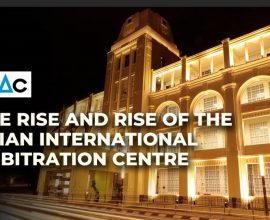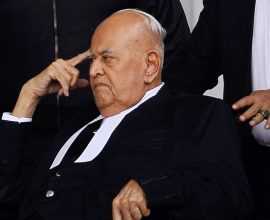Should doctors’ disciplinary proceedings be simplified?
Are disciplinary proceedings against doctors far too complex? Are complainants at a disadvantage? Can these proceedings be simplified?
More than 60 years ago, one Dr Ong Bak Hin performed an abortion on a lady.
This was in Melaka.
She died.
He was struck off the medical register.1Ong Bak Hin v. General Medical Council [1956] 1 MLJ 117, Privy Council
In 2016 a Singaporean plastic surgeon, Dr Kevin Teh, conducted vaser liposuction2 A procedure where sound is amplified to burn fat treatment on a patient: she wished to reduce fat.
Shortly after the treatment, blisters had appeared. Dr Teh told her that her blisters were ‘burns that would heal with proper care’.
They did not.
She ended up in the emergency department of a hospital, with burns on both thighs.
Dr Teh was found guilty of professional misconduct.3 https://www.straitstimes.com/singapore/health/gp-suspended-for-four-months-by-smc-for-professional-misconduct-and-serious
Malaysian Medical Council
When a patient is unhappy with the ethical conduct of a doctor, he lodges a complaint at the Malaysian Medical Council (‘MMC’).
It is the MMC that disciplines doctors.4See Medical Act 1971 and the Medical Regulations 2017
The Disciplinary Regulations were amended in January 2017.5Medical Regulations 2017 These came into effect on 01 July 2017.6Save for two provisions, Reg 28(2)(a) and (b), which came into effect on 01 January 2019
The Complaint goes through various stages, until, at the end, the Disciplinary Board decides whether the doctor complained against is guilty of misconduct; and the MMC decides what punishment he deserves.
Six categories of medical misconduct
A doctor misconducts himself if he is guilty of six kinds of misbehaviour.7If he (1) has been convicted of an offence punishable by imprisonment; (2) has had his qualification withdrawn or cancelled; [Sec 24 Medical (Amendment) Act 2012] (3) has been alleged to have committed ‘serious professional misconduct’; [Ibid] (4) has obtained his registration by improper means; (5) is not entitled to be registered; or (6) has been removed from the register of medical practitioners here or outside Malaysia.[Sec 29(2), Medical Act]
The most common complaint is ‘serious professional misconduct’. For almost 200 years this used to be called ‘infamous conduct’.8‘The meaning of ‘Serious Professional Misconduct’: Medico-Legal Journal, [1987] Part-1, Vol.5, pp. 3-5
What is ‘infamous conduct’?
Take the case of Dr Allison. This was in 1892.9Allinson v General Council of Medical Education and Registration [1894] 1 QB 750, CA
Dr Allison held strong views – about doctors in general, and himself in particular.
He took out numerous newspaper advertisements.
Allison advised the public never to have ‘anything to do’ with doctors or their drugs.
He recommended the public apply to him for advice.
Obligingly volunteering his name and address, he also – rather helpfully – quoted the amount of his fee.
He found himself in hot soup. He was hauled up before the Medical Council.
When the case came before Lopes LJ, he defined ‘infamous conduct’ as,
“… professional conduct considered ‘disgraceful or dishonourable’ by his professional brethren.’
So the doctor will be judged by his peers.10“Infamous conduct … means no more than serious misconduct judged according to the rules, written or unwritten, governing the profession.”[Per Lord Justice Scrutton in R v General Medical Council [1930] 1 KB 562, p. 569. So also in Australia: Dekker v Medical Board of Australia [2014] WASCA216as well asCranley v Medical Board of Western Australia [Unreported, Supreme Court of Western Australia, Ipp J, 21 December 1990 (BC9000957)],
Is negligence ‘misconduct’?
Mere negligence cannot be the subject of a disciplinary complaint.11Preiss v. General Dental Council [2001] 1 WLR 1926; and Rao v. General Medical Council [2002] UKPC 65; Halsbury’s Laws of England, Vol 74, p. 261, paragraph [262], 5th Ed. [2011].
Only a court can determine that.
Public pressure attempted to blur this clear line,12Walton, Sir John, President of the GMC, in ‘The General Medical Council- its changing role’, of the Medico-Legal Journal, 1985 Vol 53 part 2. Address delivered on 13 December 1984) but, as late as 2011, the courts still hold to the old rule.13Preiss, supra.
How do medical disciplinary proceedings work?
The disciplinary process is initiated by lodging a written complaint with the MMC.14Sec. 29(3), Malaysian Medical Act 1971
There the Complainant swears to the truth of his allegations. If he lies, he can be imprisoned.15Sec. 199 and 200 of the Penal Code
It is the MMC that has disciplinary jurisdiction over all doctors.16(section 29)
There are two separate types of disciplinary processes:
The Preliminary Investigation Committee (‘PIC’) conducts an ‘investigative function’.
The Disciplinary Board (‘DB’) conducts the ‘Inquiry function’
Round-1 of ‘Investigation’ – the PIC
The MMC submits the Complaint to the PIC.
The PIC ‘investigates’. If you are asked to ‘investigate’ something what will you do? You will gather facts – this is exactly what the PIC does. One cannot conduct a hearing unless all the facts and evidence are gathered.
At this stage, unlike the past, the PIC does not conduct a hearing. That function is hived-off to, a second body – the Disciplinary Board – more on that later.
If the doctor complained against (‘the Doctor’) is untraceable, or if doubts arise over the Complaint, or if the allegation is not about unethical conduct, the PIC will ‘recommend’ to the MMC that the Complaint should be ‘summarily dismissed’.17(Reg.39(1)
The PIC’s recommendation must provide reasons.18Reg.39(3)
What if the Complaint is ‘probably true’?
If so, the PIC sends the Complaint to the Doctor. It will ask him for a Reply.19(Reg.40(1)
The PIC may ask the Doctor for clarification, further information, or documents.20(Reg.40(…)(d)
After ‘considering’ the Reply the PIC can recommend to the MMC one of two things:
That there shall be no further action taken on the Complaint (‘NFA-1’).
Or it can ‘forward’ the Record of Complaint to the DB [asking] for an Inquiry.21Reg. 40(2)
Flaw-1
Reg.40 does not lay out what factors will drive the PIC to recommend an NFA, or worse still, ask for an Inquiry.
What happens if the Complainant withdraws the Complaint – or disappears?
If that happens, and if the PIC thinks that there are ‘serious grounds’ to support the Complaint, it may recommend that the MMC substitute a member of the Disciplinary Panel as a notional complainant.22Reg.40(3)
Flaw-2
If the MMC wishes to nominate a new notional complainant from the Disciplinary Panel, the new regulations require the complaint to show ‘serious grounds’.
Yet, where the PIC wishes to exercise its power to ‘forward’ a complaint to the DB for an ‘Inquiry’ – should there not be some ‘merit’ in the complaint? That is the word used in lawyers’ disciplinary cases. In such cases are ‘serious grounds’ not necessary?
Oddly, this is not explained.
Why is not the word ‘merit’ used uniformly across crucial turning points in the Regulations, instead of the phrase ‘serious grounds’ – and that too at unnecessary junctures?
Summary Dismissal by MMC
After the MMC studies the PIC’s recommendations, it can ‘summarily’ dismiss the complaint or it can – under Reg.41(2) – ‘forward’ the Record to the DB.
Flaw-3
The flaw in Reg.41(2) is that, again, there is no test on what grounds the MMC itself can ‘forward’ the complaint to the DB.
Should the Complaint exhibit ‘serious grounds’?
This is not clear.
Round 2
This is an ‘Inquiry’ (not ‘investigation’) by the Disciplinary Board.
Only the DB can carry out the Inquiry.
The ‘Interim Suspension Order’
When the DB receives the Complaint it may, if it considers it to be ‘in the public interest’ suspend the Doctor.23Reg. 42
The suspension stays in force until the investigations are completed.
Round-2A: the Suspension Order Inquiry
True it is that before it orders the suspension the DB has to conduct ‘due Inquiry … into any complaint.’
Yet, the regulatory language suggests the ‘due Inquiry’ is less about the merits of the Complaint than whether it is in the public interest.24Sec. 29A of the Medical Act)
Is the Pre-Inquiry Suspension Unconstitutional?
Flaw-4
Since July 2017 – if this is necessary for ‘the protection of the public’ – where the Council institutes a PIC investigation, or ‘holds a DB Inquiry, the Doctor may be suspended as a member of the Council’.25Sec 29A, MA 1971, read with Reg 42, MR 2017 If a doctor is suspended, he cannot practise medicine.
The suspension lasts until ‘the conclusion of the disciplinary inquiry or PIC investigation’.26Sec.3G, MA 1971. “When his conduct is not so serious”, the Doctor “can be reinstated … if at the conclusion of the preliminary investigation or the disciplinary inquiry, as the case may be, the Council finds that no case has been made out in respect of the member”.
The consequence is, the Doctor cannot practise medicine, even if it is not clear he has misconducted himself – a question that has not been decided at that point
This is contrary to Article 5 of the Federal Constitution which states,
‘No person shall be deprived of his life or personal liberty save in accordance with law’.
The Federal Court has held that the ‘right to life’ includes the right to ‘livelihood’: the right to go about one’s profession.27Lee Kwon Who v. Public Prosecutor [2009] 5 MLJ 30. See also Butchers’ Union Slaughterhouse Co. v. Crescent City Live-Stock Landing Co, 111 U.S. 746, 756-57, 4 S.Ct. 652 (1884) andDent v. West Virginia, 129 U.S. 114, 121, 9 S. Ct. 231 (1889).
This militates against the ‘presumption’ that one is innocent until one is found guilty.28Under Article 11 of the UN’s Universal Declaration of Human Rights, it is an international human right. But the right has older provenance, for example in Roman Law: “Ei incumbit probatio qui dicit, non qui negat” – “Proof lies on him who asserts, not on him who denies”. It is attributed to the second and third-century jurist, Paul. It was introduced in Roman criminal law by emperor Antoninus Pius. In the United Kingdom the phrase “innocent until proven guilty” is attributed to the British barrister Sir William Garrow (1760–1840). He is said to have used the phrase during a trial at the Old Bailey in 1791.
Taking the opposite view, an Australian Supreme Court upheld a doctor’s suspension pending his investigation.
It justified it by ruling that the medical body was merely exercising an ‘administrative power’.29Sabet v Medical Practitioners Board [2008] VSC 346. See also Dr Nitschke v Medical Board of Australia, Supreme Court of the Northern Territory [2015] NTSC 39, a similar suspension was set aside for lacking any evidential basis.
So Sec.3G of the Act may be in breach of the Federal Constitution.
Round-2B: The [Proper] DB Inquiry
The DB may then ‘Inquire into the allegations’.
We saw that PIC does not conduct any ‘hearing’.30(Reg.40(2) Under the old Regulations, it could.
All hearings are before the DB.
In this process, the DB examines only the Complainant and his witnesses.31(Reg.42(4)
The complainant must point out precisely what is the misconduct alleged before the DB hearing.32Dr Nitschke v Medical Board of Australia, Supreme Court of the Northern Territory [2015] NTSC 39 [p. 63, paragraph 143
The Complaint must clearly demonstrate – and the DB should ensure – that the Doctor knows exactly what is the Complaint made against him.
During this phase, the Complainant and his witnesses can be cross-examined by the Doctor.33or his legal counsel
The DB records the Complainant’s evidence.
Complainant & Doctor are compellable – to do what?
In Round-4, the DB can compel the Complainant and the Doctor to produce documents, or attend before it.34(Reg.42(6))
It has no power to compel – unlike section 103B (3) of the Legal Profession Act 1976 – third parties to attend or produce documents.
What recommendations can the DB make?
If there are ‘not sufficient grounds to support’ the allegation, the DB ‘recommends’ that there shall be an NFA (‘NFA–2). That is not a recommendation for dismissal, for, as we shall see later, the MMC can start where the DB has left off.
Round-3: DB Frames Charges
If ‘sufficient grounds’ support the Complaint, the DB frames a charge against the Doctor.35Reg.40(7)
It must then explain it to the Doctor and ask if he wishes to defend himself.
Then something strange happens
If the Doctor does not wish to defend himself, the DB may ‘recommend to the MMC’ that the Council ‘find’ the Doctor ‘guilty of the offence charged’.
This is a serious flaw.
Flaw-5
If the Doctor refuses to defend himself, that is not an admission.
The DB must go through a Second Evaluation Process:
It must test if the available evidence satisfies the charge – that too on a standard beyond a reasonable doubt.
What quality of evidence is needed to find the Doctor guilty?[See here]
Liability in all disciplinary proceedings is determined on the criminal standard: proof beyond a reasonable doubt.36Re B solicitor [1993] QB 69, Lord Lane held that:“… where what is alleged is tantamount to a criminal offence, the tribunal should apply the criminal standard of proof, that is to say, proof to the point where they feel sure that the charges are proved or, put in another way, proof beyond reasonable doubt.”
In 2003, the Privy Council rejected the ‘sliding scale test’ under which less serious charges could be proven on a civil standard, while serious charges were to be proven on the criminal standard.37Aaron v. Law Society[2003] EWHC 2271The Privy Council rejected the test Bhandari v. Advocates’ Committee [1956] 1 WLR 1442
However, since 2005 there has been a gradual shift towards the application of the civil standard, on a balance of probabilities. In 2008, the UK Supreme Court ruled that the sliding scale was ‘..a misinterpretation of previous authorities’.38 Re B (Children) [2008] UKHL 35. See also Michael Colledge’s article in ‘The Barrister, August 29, 2017’,– See also Sarah Clover and Lisa Jones in ‘Changing Standards – the Standard of Proof in Lawyers’ Disciplinary Proceedings’.
Round-4: What if the Doctor decides to defend himself?
If so, he defends himself by calling witnesses to testify as to his side of the events, and he may file documents.
This is an exclusively ‘defence scenario’.
The DB and the Complainant are free to cross-examine him.
The Doctor must be given a fair opportunity to reply to the Complainant’s allegations.39Kioa v West [1985] 159 CLR 550 at 587 (Mason J) and 628 (Brennan J).
The DB is usually careful to separate the wheat from the chaff.
Can the Doctor’s Fitness to Practice be tested at this stage?
If the DB finds during its Inquiry that the Doctor is ‘professionally incompetent’ by reason of ‘physical or mental impairment’ or ‘disability’, it may refer him to a committee called the Fitness To Practise Committee (‘FTPC’).
The FTPC evaluates the Doctor.40 Reg. 43
The Unexplained Gap – what next?
Beyond this there is an unexplained gap – there is little guidance on what process comes next.
Is the DB Inquiry to be halted?
What recommendations are to be made to the MMC?
There is little guidance on what process comes next.
If there are no sufficient grounds…
If DB ‘finds’ there are ‘no sufficient grounds to support the charge’ it must recommend to the Council that there should be an NFA (NFA-3).
Again, something unusual happens …
If the DB ‘finds’ the Doctor ‘guilty of the charge’ the DB informs the Doctor of its findings and gives him its ‘reasons’.41Reg. 44 (1.
It is not the MMC that ‘finds’ the Doctor guilty, but the DB
Flaw-6
There is a fatal mixture of functions between DB and the MMC in Reg.44 (1)(b).
Under sec. 29 it is the MMC that has ‘disciplinary jurisdiction’ over medical practitioners.
Under that jurisdiction, only the MMC can impose punishment.42sec. 30
It is strange that the power to ‘find’ a doctor ‘guilty’ (which is an ‘adjudicatory power’ – the power to judge) is reposed in the DB which is not a statutory creature like the MMC, but one made under subordinate legislation.
This will, in time, result in a constitutional challenge.
DB asks: “Have you got anything to say in mitigation?”
Then the DB asks the Doctor to ‘make a plea in mitigation’.
Odder still …
After hearing the Doctor’s plea in mitigation, the DB then does an even stranger thing – it ‘recommends’ what punishments could be imposed by the MMC.
Is it not odd that the body which shall impose punishment – the MMC –does not hear the plea in mitigation?
How then is the MMC to exercise its discretion?
Round-4: MMC makes its final decision … or does it put the clock back, to start all over again?
After the DB has heard the plea in mitigation, it sends the Record of Complaint to the MMC.
The MMC may accept or reject the DB’s recommendations.43Reg.45(1)(a) and(e).
The 2017 Regulations give MMC some odd powers
The MMC can ask the DB to ‘reconvene’ and make ‘further inquiries’.
This is peculiar: the DB has already ‘found the Doctor guilty’ and has heard his plea in mitigation and has recommended a punishment.44Reg. 44(2)44B.
It is arguable that such power can only be used where the DB has recommended an NFA.
If so, the Regulations must make this clear.
Even more strangely…
The MMC can even reconstitute a new DB altogether and conduct what appears to be a Fresh Inquiry.
Again, unless the DB had recommended an NFA, the powers under Reg. 45(1)(b) and (c), arguably, cannot be exercised.
MMC’s residual power to Dismiss the Charge
In this confusing mishmash of who ‘finds’ what, the MMC is empowered ‘find that no case has been made out’ and ‘dismiss the charge’.
This is called ‘residual power’.
The MMC’s power sits in the wrong place.
If the DB, having conducted an Inquiry has already ‘found’ the Doctor guilty, and has heard his ‘mitigation’ the MMC cannot make any ‘new findings’.
So also if the DB had already found that there were no sufficient grounds to support the charge, or that there should be an NFA.
We saw before that the MMC has no power to ‘find’ and ‘convict’ the Doctor.45Cf. Reg. 44(1)(b),
Yet the MMC has the power ‘to dismiss’ the charge.
This confusion is further compounded by Reg.45(e) –under it the MMC is empowered to ‘reject’ the DB’s recommendation’ – unless that ‘rejection’ relates to the DB’s ‘finding of guilt’.46Reg. 44(1)(b).
Power to give ‘such other direction…’
This power in Reg 45(10(f) is too wide and too open-ended.
Publish or Protect from Disclosure?
Finally, MMC has the power to ‘publish in the media the conclusion of any Inquiry’.47Reg. 45(3)
Again, contrast that power with Reg. 49 under which the MMC,
‘… shall not make available for… publication’ the identity…’ of the Doctor or ‘other particulars… that should be protected from disclosure in the interests of the security’ of the Doctor.
Check that against Malaysian Bar’s Disciplinary Board which only allows publication of the names and punishments of lawyers in its internal magazine.
What punishments can be imposed?
If the DB finds the Doctor guilty, only the MMC can determine the punishment.
Punishments range from a mere reprimand to a maximum suspension of two years.48Sec 30 (ii) read with (iv), of the Act.
In severe cases, a member may be struck off49Ibid, sub-para (i)
The MMC may also order costs
The MMC can order payment of costs towards either the Complainant or the Doctor –the costs which can be recovered as a civil debt.50Sec. 30(5) of the Act
This is similar to the powers of the lawyers’ Disciplinary Board.51 Sec. 103B (5) and (6) of the Legal Profession Act 1976
Advantages
Although it looks like a three-tier process, it could amount to a 3-tier or a 4-tier process.
It is thorough.
Lay participation
Under the new 2017 Regulations, laypersons participate in disciplinary proceedings.52At the PIC and DB stages: Reg.36(1)(c) and Reg.35(1) This was not possible before.
Disadvantages
Time-Consuming
The three to four-tier processes are tedious and time-consuming.
Overly complex
The Malaysian Bar went through this stage some decades ago.
It dealt with it decisively.
In 2006, its 3-tier investigative process was reduced into a simplified, 2-tier system.
At the initial stage, the Board53Advocates and Solicitors Disciplinary Board (just like the MMC) ploughs through the complaints.
The lawyers’ Disciplinary Board receives about 1,000 to 1900 complaints a year.
Where a complaint has ‘merit’, the Board appoints a Disciplinary Committee (‘DC’).
The DC investigates the complaint.
It reports its findings to the Board.
Procedural objections during investigation do not paralyse the investigation.
After the investigation is complete, the Board considers these objections, along with the DC’s recommendations.
Only the Board determines if a lawyer is guilty of misconduct.
Only it can punish.
It does not ‘split’ its functions of finding guilt and of punishment.
The Board’s decisions are automatically appealable to the High Court.
This procedure saves a great deal of time. Over the last decade, this has sped up disciplinary proceedings of lawyers.
The MMC would be better served with a two-tier process.
Procedural Fairness and Natural Justice
In disciplinary proceedings, the fate of a professional’s life hangs in the balance.
So disciplinary bodies treat disciplinary proceedings as if they are criminal proceedings.
A tribunal is obliged to accord procedural fairness to both parties.54Chief Executive Officer Department for Child Protection v Hardingham: (2011) 214 A Crim R 259 (Martin CJ, Murphy JA, and Allanson J) at [62] followingKioa v West (1985) 159 CLR 550 at 587 (Mason J) and 628 (Brennan J).See also Dr Nitschke v Medical Board of Australia, Supreme Court of the Northern Territory [2015] NTSC 39 [p. 63, para 143]
The MMC, DB and the PIC are careful not to breach the rules of natural justice.
Yet – oddly this enthusiasm for natural justice brings about a curious result.
Medical Proceedings get too technical over documents & admissibility
Current medical disciplinary proceedings place the bar too high.
They insist that the Complainant’s documents ‘must be original’, and that the person who signed the letter (‘the maker’) must appear before it.
This makes life difficult – and too technical – for the Complainant.
It is unfair to demand that laypeople comply with technical rules relating to the law of evidence.
Tribunal’s overriding consideration is the protection of public interest
Lord Bingham once said:
“A profession’s most valuable asset is its collective reputation and the confidence which that inspires”.55Bolton v The Law Society, [1993] EWCA Civ 32
Disciplinary proceedings should be more flexible.
Tribunals are masters of their own procedure.56Prassad v. Canada (Minister of Employment & Immigration), [1989]1 S.C.R. 560, the Supreme Court of Canada: “As a general rule, these tribunals are considered to be masters in their own house. In the absence of specific rules laid down by statute or regulation, they control their own procedures subject to the proviso that they comply with the rules of fairness and, where they exercise judicial or quasi-judicial functions, the rules of natural justice.”
The Medical Act must strike a balance – while the Doctor must be treated fairly, too many technical rules should not hamstring the Complainant.
Courts do not expect administrative tribunals to behave like courts. They only demand fairness of procedure.57Baker v. Canada (Minister of Citizenship and Immigration), [1999] 2 S.C.R. 81: See also Lyle, Kenee, Vice-Chair, Alberta Labour Relations Board Ontario Labour Relations Board, ‘The Perfect Match: What Can the Tribunal Do To Improve the Date?‘
This difficulty has been overcome by the Malaysian Bar.
Under the LPA, the Legal Profession Disciplinary Board does not demand such strictures.
They suspend technical rules in favour of a fair procedure.
Only where the contents of documents are material to the complaint, are its ‘makers’ called before the DC.
No power to order monetary restitution for ordering unnecessary procedures
Suppose a doctor forces a patient to undergo an unnecessary – but expensive – procedure.
Is this not unethical behaviour of the worst kind?
Surprisingly, the Medical Act does not punish this behaviour as ‘serious misconduct’.
Nor does it make provision for the PIC or the MMC to order restitution of such sums to the patient or his family.
This has been well-tackled in the LPA.
All his client’s monies improperly collected or retained by a lawyer can be ordered to be repaid to the client.58Sec. 100(10) of the LPA 1976
No power to demand documents from non-parties
Neither the MMC nor the PIC has the power to demand documents from third parties, not before it.
Only the DB can order the production of documents -and that too from the Complainant or the Doctor – not anyone else.
The DB cannot compel any other witness (or non-witness) to disclose documents.
The LPA overcame that.
There a Disciplinary Committee, even at the investigative stage, has the power to call for documents, the refusal of which has penal consequences.59Sec. 103B(3)(b)of the LPA
The way forward…
Patients and Complainants must be able to participate in proceedings that are free from technical difficulties.
Members of the PIC, the Board and MMC are industrious, self-effacing and selfless.
They expend a great deal of effort and time rendering justice to the poor and needy.
Is it not time to make their life a little easier?
[The author wishes to thank Ms. KN Geetha, Mr. JP Kirat Singh, Mr. GS Saran, Ms. KP Kasturi and Ms. Thanessha Gunalan for their assistance.]





